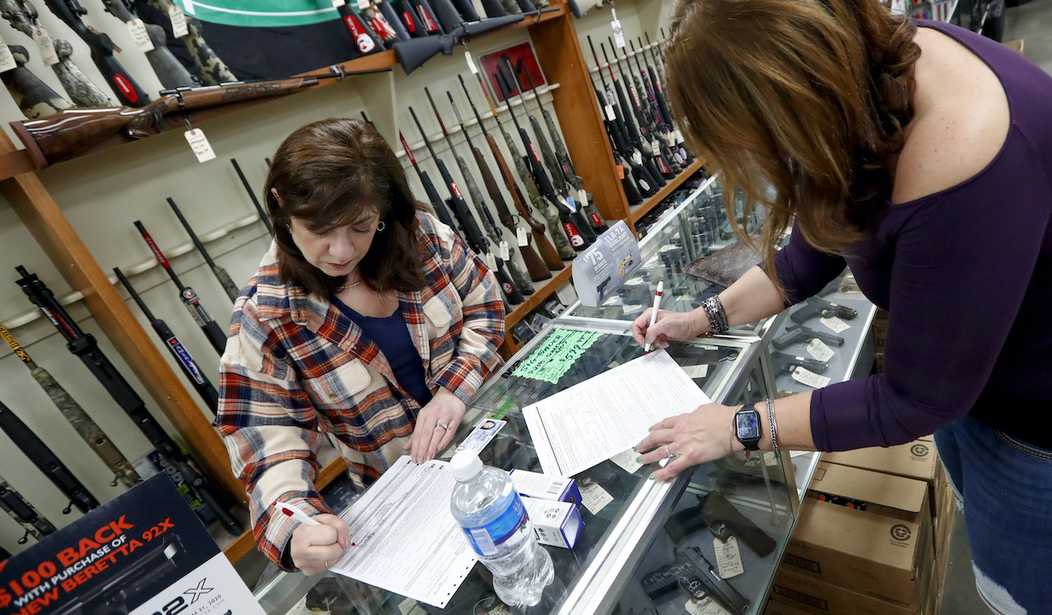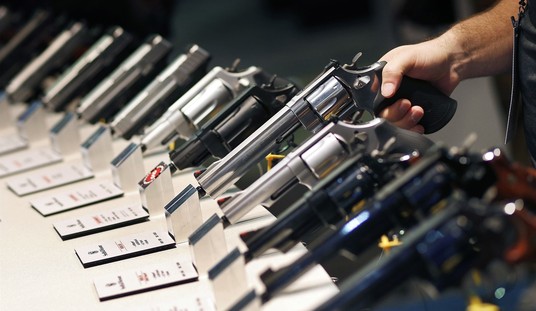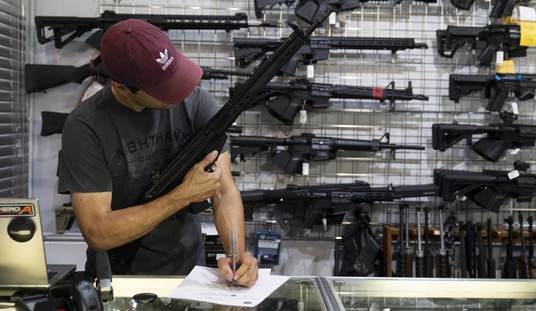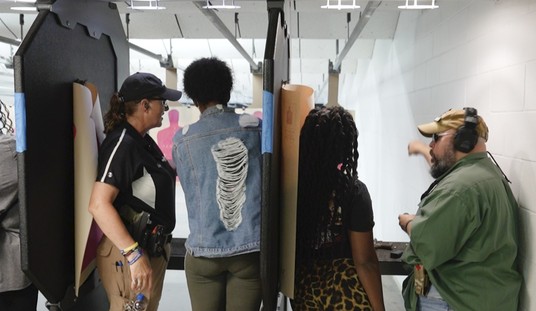A new story published by Michael Bloomberg’s anti-gun news outlet The Trace is taking a look at how Louisiana is helping to improve the nation’s instant background check system by submitting more records to NICS, but the story completely leaves out the work done by a firearms industry trade group that was instrumental in the improvements to the system.
The piece, published in conjunction with the website The Bitter Southerner, profiles the work of a bureaucrat named Norm Gobert, who started working for the Louisiana State Supreme Court back in 2009. Part of his job entailed convincing parish clerks to submit more records to the state police and the FBI, and the story portrays Gobert as a one-man wrecking crew that obliterated opposition and forced clerks to improve their record keeping through his sunny disposition and gifts of king cake.
Norm remembers more than one clerk asking him to show them “where it says I have to do what you are asking.” He was forced to share the sad truth: He had no power to make them do what he asked. Louisiana, and about half the states in the nation, don’t have unified court systems. That means that state officials can ask local court clerks to report their data, but without passing legislation, they can’t make them comply.
When a clerk’s office was missing a piece of information that the State Police and FBI needed — an arrest date or a state ID number, for example — things could get even more complicated. Norm remembers how, in some parishes, police and prosecutors were entering the state identification numbers into their computers, but those numbers were not showing up on the printed rap sheets that they sent to the clerks. So Norm had to convince yet another group of overworked government employees to reconfigure their computer systems to fix a problem they didn’t immediately understand.
Gradually, the unflappable bureaucrat with the easy belly laugh began to develop a few tricks. On the way to one of Louisiana’s more far-flung parishes, he might make a pit stop at a different clerk’s office. He’d pop in to say hello and introduce himself. Overflowing with friendliness and warmth, he’d shake some hands and leave donuts or Louisiana king cakes on the counter. “I’d tell them, ‘I can’t stay long today, but I’ll be back.’”
Gobert started his efforts in 2009, and even reporter Ann Givens acknowledges it was slow going for several years.
Initially, new records came in slowly, while Norm helped the clerks work through snags in the system. In the first five years about 36,000 conviction records were added to the NICS index. But then, the clerks started getting comfortable with the electronic systems, and the database started filling rapidly. By 2015, there were more than 350,000 records, most of which were criminal convictions, in the system; by 2018, there were more than 600,000. Today, only five states in the country have more records in the NICS database — and they are states with a different posture toward gun regulation, like California, Connecticut, and New York.
What Givens barely acknowledges is that in 2013, Louisiana legislators passed a bill, signed into law by then-Gov. Bobby Jindal that required clerks to submit these records to NICS. The National Shooting Sports Foundation, which is the trade group for the firearms industry, not only supported the measure, but actively pushed to bring the bill to the governor’s desk. In fact, NSSF praised Jindal’s signing of the bill at the time.
The NSSF national FixNICS initiative is gaining traction. South Carolina has enacted legislation improving state participation, while action is pending New Jersey. FixNICS recognizes that a federal background check is only as good as the records in the database. That is why the firearms industry supports improving the current NICS system by increasing the number of prohibiting records states submit to the FBI databases, helping to prevent illegal transfers of firearms to those who are prohibited from owning firearms under current law. Including these missing records will help ensure more accurate and complete background checks.
States must improve the NICS database by submitting any and all records establishing an individual is a prohibited person, such as mental health records showing someone is an “adjudicated mental defective” or involuntarily committed to a mental institute, as well as records showing someone is the subject of a domestic violence protective order, a drug addict or subject to another prohibited category.
The way writer Ann Givens tells it, however, the firearms industry had nothing to do with the measure.
At the same time Norm was delivering king cakes and sleeping in roadside motels, activists like Kim Sport, and lawmakers like Rep. Helena Moreno, who has since become a New Orleans City Councilwoman, were pushing for laws to keep guns out of the hands of people with criminal backgrounds. In 2013, state legislators passed a law requiring clerks to do what Norm had been pleading with them to do for five years: send in their conviction records.
No mention of the NSSF, or the FixNICS initiative. According to Givens, it was just good ol’ Norm and a few committed activists and lawmakers who were behind the legislation. This is a gross rewriting of history, and given that The Trace was behind the story, one can’t help but assume that the reason the NSSF’s efforts weren’t mentioned is because Bloomberg’s anti-gun news outlet didn’t want to give the organization any positive press or acknowledge the work that it has done on the issue.
My criticism here isn’t directed at Norm Gobert, who sounds like he’s a pretty good guy, but at Givens, The Trace, and The Bitter Southerner. Praise Gobert all you want, but if you’re not willing to offer up the same praise for the firearms industry for its efforts, you’re only telling half of the story about how Louisiana came to be a leader in submitting records to the NICS system.









Join the conversation as a VIP Member